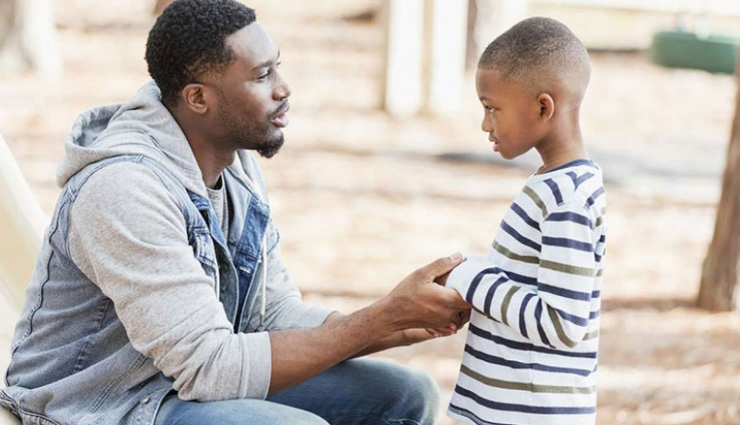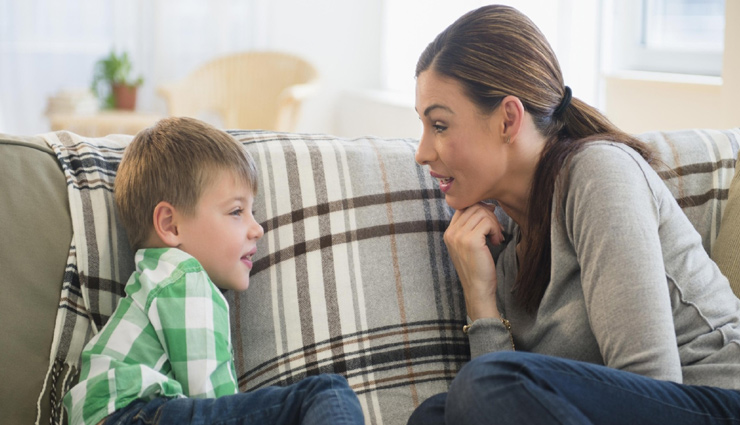- Home›
- Mates & Me›
- 6 Ways To Teach Your Child How To Fight Bullying
6 Ways To Teach Your Child How To Fight Bullying
By: Shweta Wed, 03 June 2020 3:36:30

Being protective about the children comes naturally to parents. However, since we cannot always be physically present with our children as they go about their regular day, it is important that we equip them with skill that help them instead.
Bullying is increasingly becoming a problem with children, mostly at school, and during the journey between home and school. Bullying is also becoming a common thing in the cyberspace. The fact that online activities mostly go unmonitored and give a sense of anonymity, cyber bullying is seeing a surge. Given its high prevalence, parents should be equipped to address bullying with their children. So what exactly can you do to determine if your child is being bullied, and how should parents respond?
* Communicate with your child about bullying and peer relationships
This is a very important first step because without open communication you may not know your child is experiencing bullying.Bullying is something you want your child to know about before s/he ever has to confront it.By focusing on supportive communication, children may feel more comfortable telling their parents. You can ease into a conversation with questions as simple as; How was the day at school today? Anything specifically good or bad you want to talk about?What is it like to ride the bus?

* Talk about what bullying is and what it is not
Bullying occurs in many different forms, with varying levels of severity. It may involve:
* Physical Bullying – poking, pushing, hitting, kicking, beating up
* Verbal Bullying – yelling, taunting, name-calling, insulting, threatening to harm
* Relational Bullying – excluding, spreading rumours, getting others to hurt someone
* Cyberbullying – Sending hurtful messages or images by Internet or cell phone
Bullying can also be any combination of these. Both kids who are bullied and who bully others may have serious, lasting problems.Helping kids distinguish if a behaviour is actually bullying may help them identify when they are experiencing something else, such as conflict with a friend, which is normal and can be a healthy way to learn how to get along with others.
* Recognize signs of bullying
When a child becomes a victim of bullying, he is often reluctant to bring the problem to his parents or other adults who could help him. Keep your eyes and ears open for the following tell-tale signs of bullying:
* A child comes home with missing or damaged personal items
* The child begins taking a different route home from school
* A child has few friends outside of school
* The child frequently complains of physical ailments
* A child seems depressed when she comes home from school
* The child suddenly has difficulty sleeping
* A child begins to perform poorly at school
* Keep a check on online activities
The most important thing you can do to reduce online bullying is to keep track of your child’s online behaviour. This reduces the chances of a child bullying others or becoming a victim of cyber bullying. Regularly monitoring the cell phone usage of your child also helps you avert any possible bullying. It also helps if, as parents, we stay abreast with the online trends. Be aware of the “bad neighbourhoods” online and keep your kids away from them. Some parents are hesitant to monitor their children’s texts or social networks because they worry it will appear they are prying because they don’t trust their kids. However, the online world has made it even more important for parents to know who their kids are hanging out with and what they are doing on these devices. Let your kids know you are monitoring for their own protection, rather than as a punitive measure.

* Encourage empathy
You can encourage the ability to understand others’ feelings as a way to reduce the chances your child will engage in bullying or to make sure that your child makes good choices around the other kids who bully. Talk about what it would be like to be “in someone else’s shoes.” For example, if your child does reveal someone at school is being bullied, discuss how that child must be feeling.
* Take action immediately
When you realize that your child has become a victim of a bully, you can take the following steps to protect your child:
* Let your children know they can go to an adult when they can’t handle the bully on her own
* Address the issue promptly with the child’s teacher or the school principal
* Encourage your child to spend time outside school with his immediate circle of friends to build self-esteem and confidence
* Help your child develop positive skills in sports, music or art
* Urge your child to stick with friends at school, especially in situations when bullying is more likely
* Have your child talk to a counsellor about the situation



-1713979511-lb.jpg)

